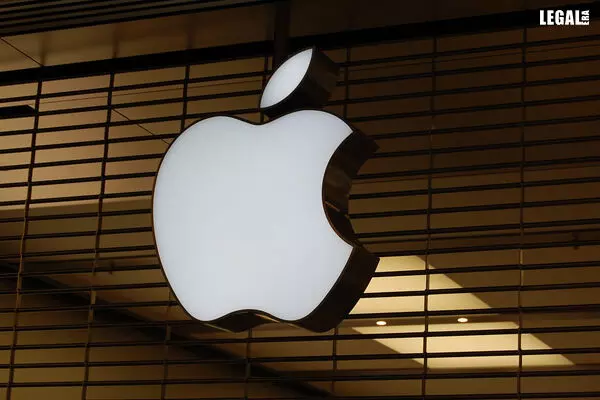- Home
- News
- Articles+
- Aerospace
- Artificial Intelligence
- Agriculture
- Alternate Dispute Resolution
- Arbitration & Mediation
- Banking and Finance
- Bankruptcy
- Book Review
- Bribery & Corruption
- Commercial Litigation
- Competition Law
- Conference Reports
- Consumer Products
- Contract
- Corporate Governance
- Corporate Law
- Covid-19
- Cryptocurrency
- Cybersecurity
- Data Protection
- Defence
- Digital Economy
- E-commerce
- Employment Law
- Energy and Natural Resources
- Entertainment and Sports Law
- Environmental Law
- Environmental, Social, and Governance
- Foreign Direct Investment
- Food and Beverage
- Gaming
- Health Care
- IBC Diaries
- In Focus
- Inclusion & Diversity
- Insurance Law
- Intellectual Property
- International Law
- IP & Tech Era
- Know the Law
- Labour Laws
- Law & Policy and Regulation
- Litigation
- Litigation Funding
- Manufacturing
- Mergers & Acquisitions
- NFTs
- Privacy
- Private Equity
- Project Finance
- Real Estate
- Risk and Compliance
- Student Corner
- Take On Board
- Tax
- Technology Media and Telecom
- Tributes
- Viewpoint
- Zoom In
- Law Firms
- In-House
- Rankings
- E-Magazine
- Legal Era TV
- Events
- Middle East
- Africa
- News
- Articles
- Aerospace
- Artificial Intelligence
- Agriculture
- Alternate Dispute Resolution
- Arbitration & Mediation
- Banking and Finance
- Bankruptcy
- Book Review
- Bribery & Corruption
- Commercial Litigation
- Competition Law
- Conference Reports
- Consumer Products
- Contract
- Corporate Governance
- Corporate Law
- Covid-19
- Cryptocurrency
- Cybersecurity
- Data Protection
- Defence
- Digital Economy
- E-commerce
- Employment Law
- Energy and Natural Resources
- Entertainment and Sports Law
- Environmental Law
- Environmental, Social, and Governance
- Foreign Direct Investment
- Food and Beverage
- Gaming
- Health Care
- IBC Diaries
- In Focus
- Inclusion & Diversity
- Insurance Law
- Intellectual Property
- International Law
- IP & Tech Era
- Know the Law
- Labour Laws
- Law & Policy and Regulation
- Litigation
- Litigation Funding
- Manufacturing
- Mergers & Acquisitions
- NFTs
- Privacy
- Private Equity
- Project Finance
- Real Estate
- Risk and Compliance
- Student Corner
- Take On Board
- Tax
- Technology Media and Telecom
- Tributes
- Viewpoint
- Zoom In
- Law Firms
- In-House
- Rankings
- E-Magazine
- Legal Era TV
- Events
- Middle East
- Africa
U.S. Appeals Court Rules Against Apple in Copyright Claims over iOS Simulation

U.S. Appeals Court Rules Against Apple in Copyright Claims over iOS Simulation
The 11th U.S. Circuit Court of Appeals ruled against Apple Inc., as the tech-giant company was unsuccessful in convincing the Court that a security startup company called Corellium Inc., had infringed its copyrights by simulating its iOS operating system to help researchers find security flaws in Apple devices.
The Court was of the view that Corellium had lawfully recreated Apple’s system under the U.S. copyright doctrine of fair use, furthering scientific progress by aiding important security research.
Located in Florida, Corellium's software allows users to run iOS on non-Apple devices and scrutinize and alter the operating system in ways that permits the security researchers to search for susceptibilities and security breaches more effectively.
In 2019 Apple sued Corellium for copyright infringement before the South Florida Federal Court.
Thereafter, in 2020 The District Court had rejected Apple’s claims over Corellium's iOS simulator.
Following which Apple appealed in 2021. Apple was unsuccessful in buying Corellium for nearly $23 million before filing the lawsuit, the Appeals Court noted.
The 11th Circuit affirmed that Corellium made fair use of x and said Corellium’s software adds new features that help security researchers ‘do their work in a way that physical iPhones just cannot.’
Furthermore, the Appeals Court refuted Apple’s arguments that Corellium had merely repackaged iOS in a different format for profit, causing irreparable losses to Apple in market for its operating system and its security-research programs.
Notwithstanding, the Circuit Court expressed that, Corellium ‘opened the door for deeper security research into operating systems like iOS.’
Hence, the Appeals Court remitted the case back to the District Court to consider if Corellium had infringed copyrights covering Apple’s icons and wallpapers or contributed to infringement by third parties.



